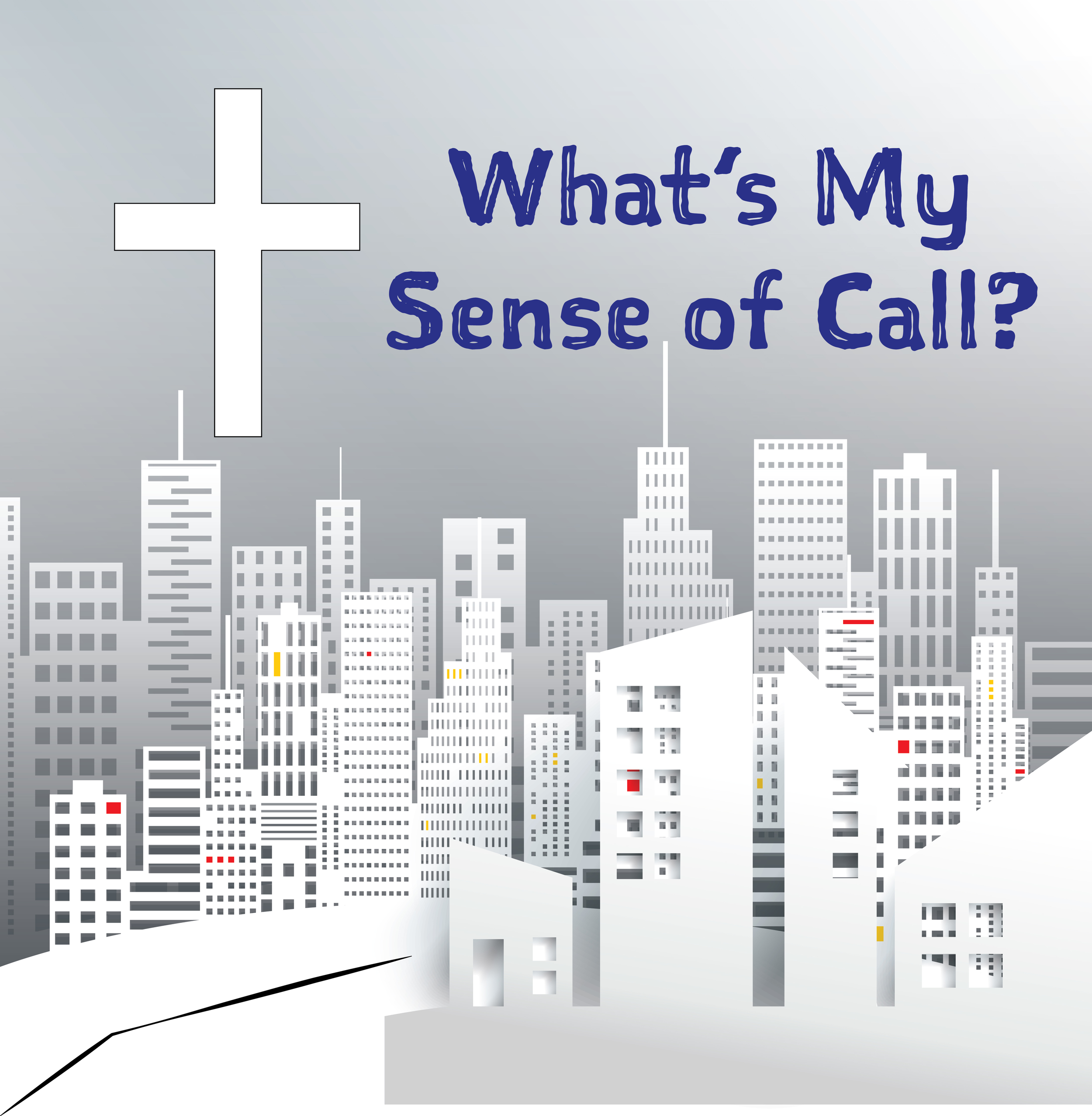This time of year, many around the world celebrate Christmas with family and friends by sharing songs, food, gifts, traditions, and prayers. We as Christians recall the birth of Jesus. It is a story celebrated and joyously retold. What might make this year's re-telling any different?
Singer, song-writer, David M. Bailey posed a similar question in his song, Angel in the Attic:
It’s Christmas time again
Feels like an old familiar friend
The angel on the tree
Is looking down at me
She's been sleeping in the attic for a year now
Waiting for this day to arrive
She’s only got a short while to shine her light
Just like us, gotta shine while you're alive
Our Christmases have truly accumulated multiple customs and practices over the centuries, both in our churches and in our homes. Through the glitter and liturgy, we try to resonate with the stories' re-telling because it connects us in powerful ways. Christmas is about connecting. How are you connecting?
What does Christmas connect you to? Aspirations of peace, hope, justice and reconciliation? Occasions for family gatherings and festivities? Sure, all this and much more besides. But at its core, the story of Christmas can connect us to even more than the shocking news that God became a person, and the amazing events that followed. Jesus is the light of the world, and like that angel atop the tree, we have light to offer the world in Jesus' name. We are to be fresh expressions of God's presence. We are unique possibilities that God will continue to connect with us and through us to the world God loves. We are the recipients of gifts, and in the spirit of reciprocity, we become gifts to others!
Unfortunately, our familiar Christmas story recounted in pageants, songs, and cards shows the Church to be kind of presumptuous. We proclaim peace from the mountaintops, but persist in our patterns of institutional preservation. From the pulpits all are welcomed, but in the city streets, many are ignored. We celebrate God's reconciling and restorative love through Christ, yet continue to tolerate the injustice of our prison systems, poverty in our communities, greed in our corporations, disparity in our schools. and disregard wholeness and wellness in our lives, and for our planet.
The dusted-off decorations and trappings of Christmas can appear a bit thoughtless when we too easily assume that Christmas is for everyone. Sure, the message and meaning of Christmas has at its core the Creator God loving everyone and moving into our neighborhood (John 1:14). The incarnation, God becoming flesh, is the incredible message as written by the prophet recorded in Isaiah 7:14, "Therefore the Lord himself will give you a sign: The virgin will conceive and give birth to a son, and will call him Emmanuel" (which means God with us). Yes, its truly good news for all!
Remember that the neighborhood Jesus was birthed into suffered oppression from political and religious leaders alike. The multi-ethnic, multi-language, multi-color world was, in fact, Jesus' neighborhood, too. He was born in poverty in the Middle East to an unmarried woman. As a political refugee, he became an immigrant when his parents fled for safety to Africa. He grew up in a despised town called Nazareth, called no place home, and was rejected, even by his friends and family, as an annoyance, a failure, liar, lunatic, and from time to time, a revolutionary, and, of course, as Lord. To the politicians he was a threat. To the community organizers he was a charlatan. To the religious leaders he was an embarrassment. We have a responsibility to show God's love to the world in authentic ways and must not distort that message for the sake of a few familiar hymns, kitsch decorations, glib salutations, and hollow traditions. Maybe our celebrations of Christmas are good enough and we should spend more time living Christmas's promise.
Though the Christmas story is familiar to us, we remember that our communities are wonderfully complex and diverse. Chris Brogan is one of my favorite bloggers for whom I have a great deal of respect for the authentic way he communicates with his readers. In a recent post (Put the Human Touch on The "Holidays"), he reminded me of how I can unintentionally, yet thoughtlessly, assume everybody gets Christmas like I do.
Neighbors this time of year enjoy the Winter Solstice as the length of day and night reach their planetary extremes. Some neighbors do not express "faith" at all, or in a manner we understand. Communities honor values and celebrations before and after December 25th. For example, the African-American, Pan-African, Kwanzaa celebration is December 26th through January 1st. My Hindu friends celebrated the Diwali festival of lights November 3rd. My muslim friends had their New Year in November. Hanukkah for my Jewish neighbors was celebrated November 27th to December 5th. It is humbling that for all the things we get right at Christmas time, we seem to ignore other's traditions but with a kind of hubris fail to acknowledge that we got Jesus' birthday wrong to begin with! Jesus' actual birthday was most likely in the Spring, in 4 B.C.! (This is worth thinking about.) How do we show God's love through conversations of hope with others who are certainly in God's Christmas story, but may not as yet be in our Christmas story?
Some things about the season of Christmas require no change. It is fixed in our Christian liturgy, programmed in our holiday shopping and marketing schedules, accommodated in school vacations, and historically expressed in a variety of world traditions that include Turkey's St. Nicholas, Germany's Christmas Tree, and North America's Santa Claus, to name a few.
This Christmas can be different, though, if we in the Church take on the manner and mind, not of Christmas, but the manner and mind of Christ. Paul put it this way: "Think of yourselves the way Christ Jesus thought of himself. He had equal status with God but didn’t think so much of himself that he had to cling to the advantages of that status no matter what. Not at all. When the time came, he set aside the privileges of deity and took on the status of a slave, became human! Having become human, he stayed human. It was an incredibly humbling process. He didn’t claim special privileges. Instead, he lived a selfless, obedient life and then died a selfless, obedient death—and the worst kind of death at that—a crucifixion (Philippians 2:5-10 The Message).
The best expression of Christmas may be in better connecting. Here in Newark, New Jersey, during the Colonial Period, great festivities and “gifts” connected communities, unlike in the colonies in Boston and Virginia with their Puritan influences or anti-British sentiments that constrained Christmas expressions. There are many multi-cultural and historical ways to celebrate Christmas, but at its heart, the Christmas Connection contains ideas evoking a love connection, movement, mission, and joyful purpose in sending our Christ-experience into the future to bless others. Christmas is connections in motion.
David Bailey's song, Angel in the Attic, concludes with this stanza:
It's Christmas time again
Feels like an old familiar friend
Gifts beneath the tree
Hope there is one for me
And that baby we’re all here to remember
The reason that the angel sings her song
Well the angel is gonna fly away when the song is over
But the baby will be with you all year long
It's Christmas time again
So good to have a friend, Emmanuel
God with us. These words are especially poignant when you realize that David died from brain tumor in 2010 at the age of 45, leaving behind a life well-lived, a wonderful family, and more than 23 hope-filled albums and hundreds of songs. You may want to listen to David's music on iTunes. I met and worked with David in 2005 and that experience and his music continue to enrich my life.
This Christmas, think about how you express the manner and mind of Christ. This Christmas, consider how you connect within your family, community, office, shop, factory, place of worship, or school. You are not a victim to your past, perhaps inadequate, connecting. Take responsibility and thoughtfully consider how you connect, with whom you connect, and why you connect. How to you resource the connections for others, within and without your preferred Christmas traditions?
Thank you for reading, commenting, and sharing any of these ideas that you find useful. Merry Christmas to you, your family, and to your communities, as we are sent with new connections and opportunities that bless the world.
To God be the glory,
to the earth be peace,
to the people be courage, and
to the city be hope.
Joyfully and appreciatively,
Kevin
















